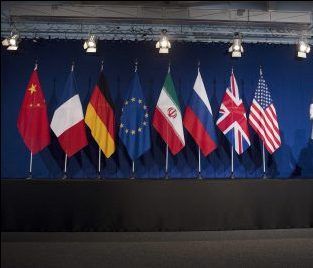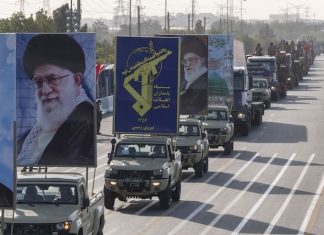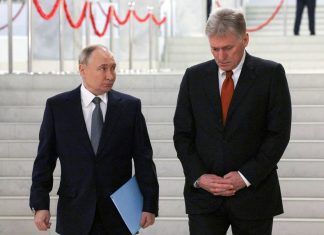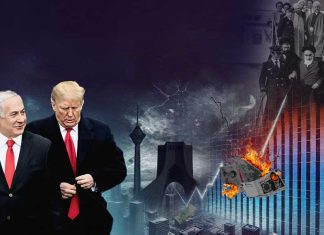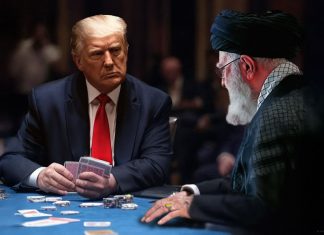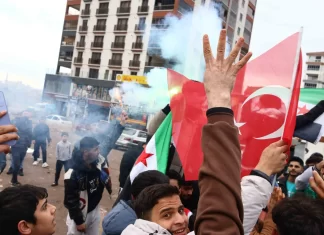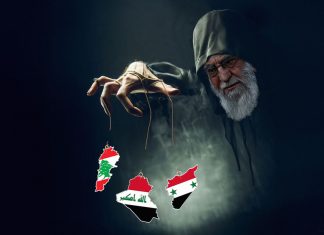By Parisa Hafezi and John Irish
DUBAI, June 8 (Reuters) – A host of barriers to the revival of Iran‘s nuclear deal remain firmly in place ahead of talks due to resume this week between Tehran and world powers, suggesting a return to compliance with the 2015 accord is still a way off, four diplomats, two Iranian officials and two analysts say.
Iranian demands about sanctions relief and Western concern over Iran‘s expanding nuclear know-how are among questions that may need weeks or possibly months of further negotiations, the diplomats and analysts said.
The talks seek to revive a landmark pact under which Iran agreed to curbs on its nuclear programme in return for the lifting of international sanctions, which opened the way for a brief thaw in decades of U.S.-Iranian confrontation.
Then-President Donald Trump abandoned the deal in 2018 saying it was too soft on Tehran, and reimposed sanctions. Iran responded by violating the agreement’s limits.
Trump’s successor Joe Biden has said he wants to restore the deal’s nuclear limits and if possible extend them to cover issues such as Iran‘s regional behaviour and missile programme. Iran wants all sanctions lifted and no expansion of the terms.
European Union envoy Enrique Mora, the chief coordinator of the talks, said last week he believed a deal would be reached at the upcoming sixth round of negotiations in Vienna, expected to resume on Thursday or Friday.
Adding to the impetus to make progress is an election in Iran on June 18 to replace President Hassan Rouhani, a pragmatist who promoted the original deal. He is widely expected to be followed by a hardline successor.
The election is not likely to change Tehran’s negotiating stance: regardless of who is president any deal must be approved by Iran‘s hardline faction through Supreme Leader Ali Khamenei. But neither Washington nor Tehran wants to start from scratch, or entangle the deal further in Iranian domestic politics.
Iran‘s top nuclear negotiator said last week that barriers to a revival of the deal are complicated but not insurmountable. “Differences have reached a point where everyone believes these differences are not insolvable,” Abbas Araqchi said.
However, none of the remaining sticking points lend themselves to rapid solutions, according to the diplomats, Iranian officials and analysts of Iranian nuclear matters.
Their assessment chimes with downbeat remarks on Monday by U.S. Secretary of State Antony Blinken, who said Washington still did not know whether Iran was ready to resume compliance with the deal.
“I doubt that the next round will be the final one… The parties are still far apart on core issues,” said Ali Vaez, senior Iran analyst at the International Crisis Group.
And when, or if, disagreements are solved, more talks would be needed on so-called sequencing – the delicate question of which side takes which action and when, in return for reciprocal steps by the other side, the diplomats said.
The negotiations have made considerable progress but are now at the hardest part with the key decisions still needed, said a European diplomat briefed on the talks, which began in April.
‘THE HEART OF THE MATTER’
The talks have arrived at “the heart of the matter on the nuclear dimension”, a second European diplomat said.
A senior Western diplomat said that “of course” he hoped that the next round would result in a deal, but injected a note of caution, saying “until we are able to resolve the important issues that remain, we won’t know.”
An Iranian official said: “Everything depends on Washington. If the American side accepts to lift all sanctions, then Iran will return into full compliance with the deal.”
In addition to seeking the lifting of Trump-era sanctions, Tehran also wants Washington to remove Iran‘s Revolutionary Guards from a terrorism blacklist, which can be used to bar Iranian businesses from the international financial system. It wants Europe to guarantee foreign investors will return, and assurances that Washington will not renege on the deal again.
But from the standpoint of Washington and its European allies, it would no longer be sufficient to return to the nuclear restrictions in the orginal deal, designed at the time to ensure that Iran could not build a bomb in less than a year.
In the months that Iran has been breaching the limits, it has made technical advances that make the original restrictions out of date. Vaez noted that Iran has begun using advanced centrifuges, known as the IR9, which are 50 times more powerful at producing enriched uranium than the ones covered by the deal, known by its initials as the JCPoA.
BREAKOUT TIME
“If Iran refuses to destroy these machines, its breakout time will be shorter, unless it agrees to dismantle an equivalent number of IR1 machines. That is seen by Iran as humiliating and beyond the JCPoA’s scope,” Vaez said.
The Iranians have acquired knowledge and capabilities they did not have before, said the European diplomat briefed on the talks, citing Iran‘s first ever production of uranium metal, a material that can be used to make the core of an atom bomb.
The development, reported this year by the International Atomic Energy Agency, was not something covered by the 2015 deal, and any revival of the pact would have to take account of this new-found capability, Vaez said.
Bob Einhorn, a former senior State Department official and nuclear negotiator with Iran, thought it highly unlikely that there would be an agreement before the presidential election, but conceivable one could be struck during the interim “lame duck” period before the new president takes office.
Einhorn, now at the Brookings Institution think tank in Washington, said there could be some political advantage for the new Iranian president to a deal being agreed during the interim.
A new president could criticize any concessions made by the current Iranian administration of President Hassan Rouhani, then later take credit for any economic boost the deal produced, he said. “So you could see a kind of logic.”
(Reporting by Parisa Hafezi in Dubai Additional reporting by John Irish in Paris, Arshad Mohammed in Washington and Francois Murphy in Vienna Writing by William Maclean Editing by Peter Graff)

